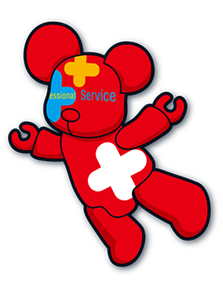Authors (including presenting author) :
CHAN WY(1), KWONG SK(1), LO KK(1)(2), HO KY(1), CHAN SH(1), LI PC(2), CHAN SMM(2), FONG HYR(2)
Affiliation :
(1) Department of Anaesthesiology & OT Services, Queen Elizabeth Hospital
(2) Day Surgery Centre, Queen Elizabeth Hospital
Introduction :
Patient safety is the cornerstone of high-quality healthcare. It is an important feature in healthcare setting, especially in the Operating Theatre where patient is vulnerable to different kinds of risks. Adequate communication among surgical team members and consistency of care are crucial to patient safety throughout the perioperative journey. To protect patient from preventable adverse events during the perioperative journey, World Health Organization (WHO) has advocated “Safe Surgery Save Life” and introduced a “Surgical Safety Checklist”. For years, we have been using “Time out” as a preoperative measure to ensure safe surgery. To close the loop and further improve communication and surgical outcomes, we implemented a project, “Sign out”, to sign a perfect full stop for patient safety in our Operating Theatre. From October 2016 to February 2017, Department of Anesthesiology and Operating Theater Services liaised with Day Surgery Center of Queen Elizabeth Hospital to launch a project performing “Sign out’” for enhancement of patient’s safety through confirmation of critical items after surgery.
Objectives :
To enhance surgical safety in OT settings.
Methodology :
Lewin’s (1947) Change model was employed as a methodology for design and implementation. A “Sign out” form was designed. Nursing staff were required to complete the “Sign out” checklist with confirmation and verification of surgeon and anesthetist after surgery. A series of promulgation activities had been launched. A pilot period of four weeks was designed to obtain data and analysis and get feedback from anaesthetist, surgeons and nurses. We retrospectively collected data on clinical processes and outcomes after introduction of the “Sign out” procedure to 93 surgical patients who have undergone surgeries. Finally, 63 questionnaires were collected from the involved parties. Subsequently, we evaluated the participated healthcare professionals’ perception and attitude towards the procedure.
Result & Outcome :
The data showed a positive trend towards “Sign out”. 71% of surgeons, anesthetists and nurses agreed that “Sign out” could promote surgical safety by reducing avoidable risks. 73% of the respondents agreed that “Sign out” could improve surgical team members’ communication and help to develop safety culture. 70% respondents believed that “Sign out” could minimize miscommunication among healthcare professionals for it provided a formal channel to openly communicate and clarify misunderstanding. 63% respondents agreed that it helped the transition of perioperative care to postoperative phase due to the adequate communication involved. 64% of the respondents supported that “Sign out” could facilitate teamwork since it provided a communication channel for concluding the surgical procedure. Finally, more than 60% respondents supported that the form and its instruction were well-designed and clear. The result of implementation of the “Sign out” procedure was positive. During the pilot period, there was no specimen discrepancy, no patient discharged to wrong ward, no retained foreign bodies, no wrong site surgery. It proved and supported that “Sign out” procedure achieved a positive outcome that safeguarded a safe and uneventful perioperative journey. To strive for excellence and with top management support, the “Sign out” checklist was further revised after consultation with COSs of various specialties. The checklist was now incorporated into the “Time out” checklist to form a new Surgical Safety Checklist of Queen Elizabeth Hospital. The new Surgical Safety Checklist MR 0148/ QE finally inaugurated on 28 August 2017 with full support from anaesthetist and surgeons of all specialties. Since then, “Sign out” has been performed for all GA cases in Operating Theatre and Day Surgery Centre of QEH.








